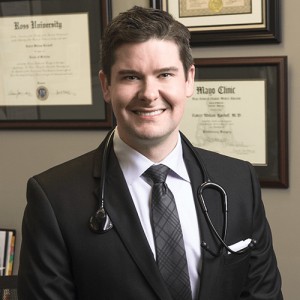Addictions Certificate Program | Track 3: Addictions Treatment with Complex & Comorbid Populations
Summary
As behavioral healthcare service delivery has become increasingly concerned with effective treatment for co-occurring mental health and substance use disorders, integrated care models, and dual-diagnosis-informed interventions have emerged and become well- established. The more recent acknowledgement of the importance of further integration with physical healthcare treatment services is also highly pertinent to successful and sustainable treatment of substance-involved populations. This set of learning sessions will focus on addictions treatment with individuals having complex and comorbid circumstances and conditions, including mental health, physical health, criminal justice, and trauma issues.
- Identify the 26 domains of the Integrated Dual Disorders Treatment model, and which are most impactful.
- Identify the 7 domains of the "Dual Diagnosis Capability" framework for application to traditional substance abuse (DDCAT), mental health (DDCMHT), and primary care (DDCHCS) programs.
- Describe how to access useful cost-free information and resources to develop or enhance dual disorders treatment delivery.
- Describe the pros and cons of different approaches to considering culture and ethnicity in addictions treatment.
- Identify 12 gender-responsive principles for addressing the specific substance abuse treatment needs of women.
- Identify 5 important cultural issues when working with LGBT individuals.
- Identify 6 key principles and 4 models of Drug Court programs and describe the demonstrated efficacy of this approach.
- Describe other ways of integrating addictions treatment with legal case processing including strategies for interfacing with probation and parole departments.
- Identify the 8 elements of transition planning to support continuity of offender treatment for substance use disorders from institution to community.
- Identify 3 historical barriers and bridges between spirituality/religion and addictions treatment.
- Demonstrate how a comprehensive assessment of client spirituality can effectively inform treatment planning.
- Identify 9 guidelines for using religious/spiritual interventions in addictions treatment.
- Describe physical health sequelae that are indicators of at least 3 different types of substance abuse.
- Describe the relationship between HIV, Hepatitis B & C, and other infectious diseases and substance abuse.
- Describe smoking cessation treatment interventions in primary care and addictions treatment settings.
- Describe how symptoms of intoxication/withdrawal interact in toxic fashion with personality disorder symptoms.
- Describe how personality disorder symptoms are both a risk factor for, and consequence of, various addictions.
- Describe the effective treatment model for Borderline Personality Disorder and Addiction of Dialectical Behavior Therapy-S.
- Describe how 3 symptoms of intoxication/withdrawal syndromes mimic anxiety disorder symptoms.
- Describe how anxiety disorder symptoms are both a risk factor for, and consequence of, various addictions.
- Identify 4 psychosocial strategies for managing anxiety without potentially addictive medications.
- Describe how 3 symptoms of intoxication/withdrawal syndromes mimic mood disorder symptoms.
- Describe how mood disorder symptoms are both a risk factor for, and consequence of, various addictions.
- Identify the risks of 2 different approaches to addressing mood disorder symptoms in addiction treatment.
- Describe how 3 symptoms of intoxication/withdrawal syndromes mimic thought disorder symptoms.
- Describe how thought disorder symptoms are both a risk factor for, and consequence of, various addictions.
- Identify 3 ways of adjusting co-occurring addictions treatment for clients with significant cognitive impairment.
- Describe prescribing protocols/strategies for managing the use of potentially abusable medications.
- Identify 4 medications prescribed as strategies for assisting recovery efforts, and when they may be indicated.
- Describe methadone treatment for opioid addiction, and what the research evidence shows regarding efficacy.
Self-Paced Agenda
| Expected Duration | Description |
|---|---|
| self-paced | Dual Disorders Treatment Frameworks |
| self-paced | Cultural Humility and Competence |
| self-paced | Legal System / Criminal Justice Interface |
| self-paced | Addiction and Spirituality |
| self-paced | Physical Health Concerns, including Communicable Diseases |
| self-paced | Addiction and Personality Disorders |
| self-paced | Addiction and Anxiety Disorders, including PTS/D |
| self-paced | Addiction and Mood Disorders |
| self-paced | Addiction and Thought Disorders |
| self-paced | Recovery-oriented Prescribing Practices & Pharmacological Recovery Supports |
hybrid certificate program
CE Contact Hours
- 28.5 regular asynchronous online
- 1.5 regular live interactive online
Location
online
 Stephen R. Wiland
Stephen R. Wiland Lori A. Ryland
Lori A. Ryland Carolyn Hartford
Carolyn Hartford Robert W Kirchoff
Robert W Kirchoff